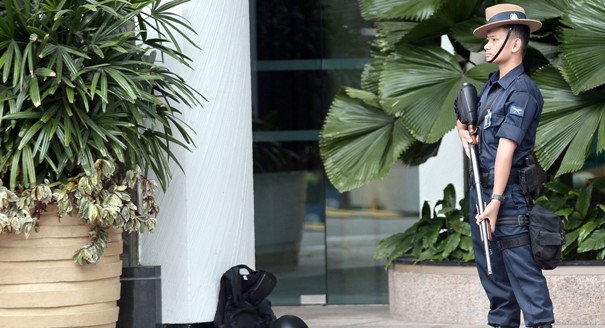The Kremlin’s own “pivot to Asia” is not entirely new and should not be viewed exclusively as a response to its deteriorating relations with the West. As the global crisis struck in 2009, Russia discovered that China’s GDP was growing at the same pace that the Russian economy was contracting. That same year China surpassed Germany as Russia’s largest trade partner—the position it still holds now and will hold in the near future. The Western reaction to Moscow’s policies in Crimea and Ukraine, however, make Russia’s turn to the East more of a necessity for the Kremlin. During his May visit to Shanghai, Vladimir Putin and Xi Jinping watched over the signing of some 40 bilateral documents, nearly a third of them—half-baked memorandums of understanding. In normal circumstances these documents wouldn’t have reached the leaders’ desks. This stack may have been meant to impress others, but the basic truth is: the significance of Asia (most notably China) for the Russian economy is set to grow regardless of the dynamic in Moscow’s relations with the West.
Pivoting to Asia requires that Russia develop a strategy which will include not only optimistic projections of the growing Chinese appetite for Russian resources, but also possible risks deriving from a deteriorating security situation in the region. To craft its Asian strategy, Moscow needs to understand the complex processes now under way in the region and to foster an extensive network of official and unofficial contacts with all significant players. Does Moscow have this kind of vision? Russia’s recent showing at the 13th Shangri-La Dialogue in Singapore provides some clues.
Over the years, the Shangri-La Dialogue, organized by the International Institute for Strategic Studies (IISS), has become the one event which brings together all leading figures in defense and foreign policy communities from the whole of the Asia-Pacific. The United States and China as the major players have over the years sent large delegations with dozens of policy-makers (with the United States slightly in the lead, status-wise, as its delegation is normally chaired by the secretary of defense while the Chinese prefer to send second-tier figures).
Against this background, Russia’s delegation has always been small. Sergey Ivanov, the current Kremlin chief of staff, came to Singapore a couple of times as a deputy prime minister in charge of the defense industry. Russian defense ministers never showed up. This year the official Russian delegation was comprised of just five people including this author (even Germany had a larger list). Anatoly Antonov, deputy minister of defense, confirmed his participation only on the last day—without him Russia would be absent from official panels of the forum due to the low status of its delegation. The networking capacity and ability to talk to other participants (which is the most valuable part of events like Shangri-La or the Munich Security Conference) was thus limited, lowering the Moscow delegation’s opportunity to hear insights from knowledgeable people from the region. To those others, this suggested how little importance Russia really attaches to security issues in Asia. What made things even worse though was Antonov’s speech.
Anatoly Antonov appeared on the panel alongside the PLA Deputy Chief of General Staff Wang Guanzhong. Others nicknamed this panel the “naughty boys corner.” And both presenters met the expectations. Lieutenant General Wang accused the Japanese Prime Minister Shinzo Abe and the U.S. Defense Secretary Chuck Hagel of provocation and intimidation. As for Antonov, he dedicated half of his speech to a wholly different topic: the need for Asia-Pacific to stand up to “color revolutions,” which Russian deputy minister of defense portrayed as a Western plot to overthrow legitimate governments like Ukraine’s previous one.
Antonov did not even mention most of the questions relevant for the audience, such as maritime security in the South China Sea, the role of U.S. military presence or the application of international law to maritime disputes in the region. What he did say about the need to increase transparency for drills and military build-ups were largely lost on the listeners. As I spoke to other participants afterwards, most people remembered only the Ukrainian part of Antonov’s speech. Given the fact that majority of the participants didn’t accept Russia’s actions in Crimea, for fear that they could be a possible model for China to settle disputes with its neighbors unilaterally, this was not a good sign. Some Asian participants concluded that Russia completely lacks understanding of what is going on in Asia in terms of security architecture. Some were more blunt and even expressed their condolences to me.
As an accomplished and highly experienced diplomat, Anatoly Antonov, of course, may have just been seeking to steer clear of controversial issues. However, such performance creates a sense of profound misreading by Moscow of the audience and the format of the Shangri-La Dialogue. As Russia pivots to Asia, it needs to try harder to close the gap in understanding the region, which is becoming so important for Russia’s future.
Alexander Gabuev is deputy editor-in-chief of Kommersant Vlast.





